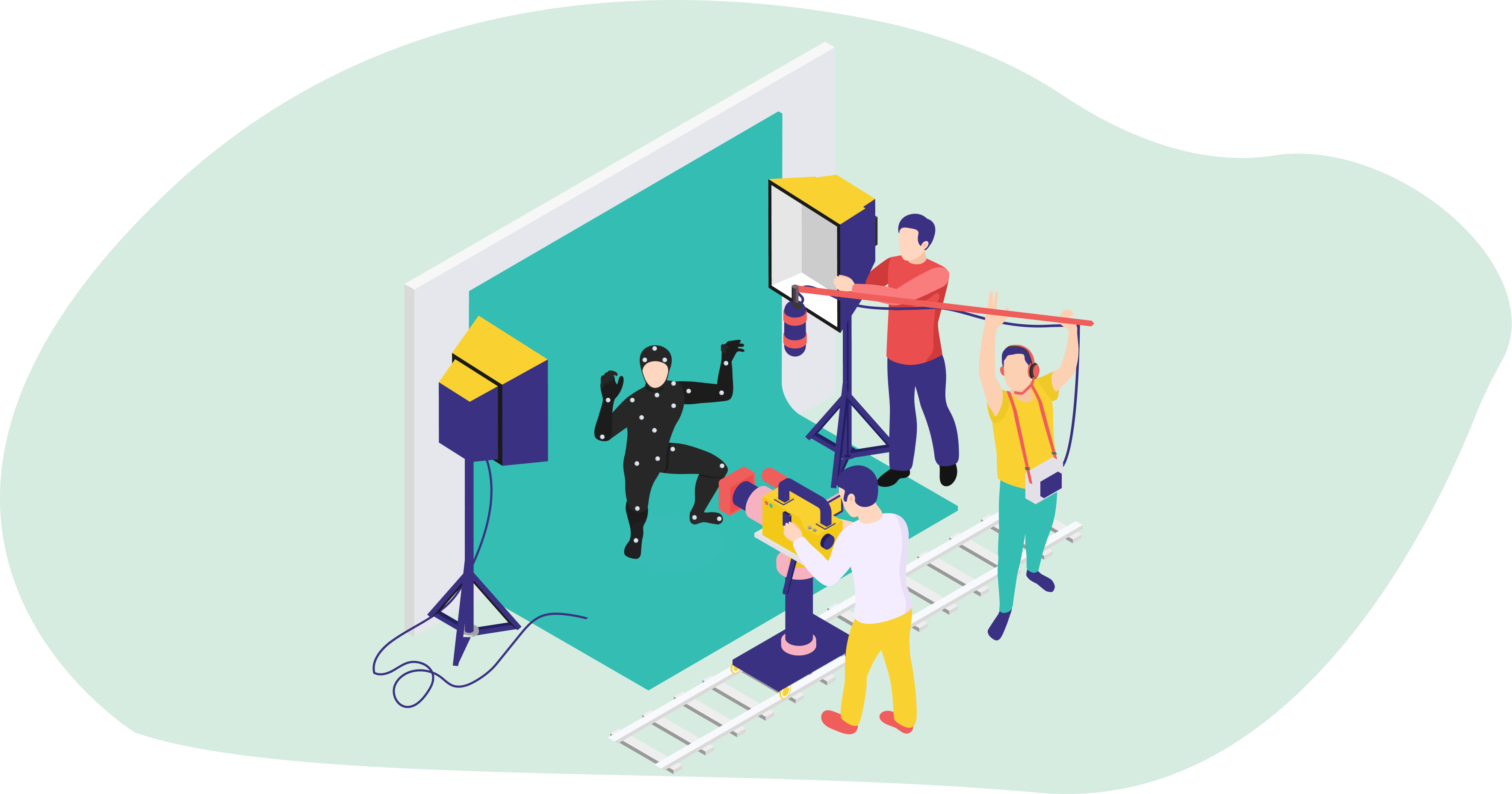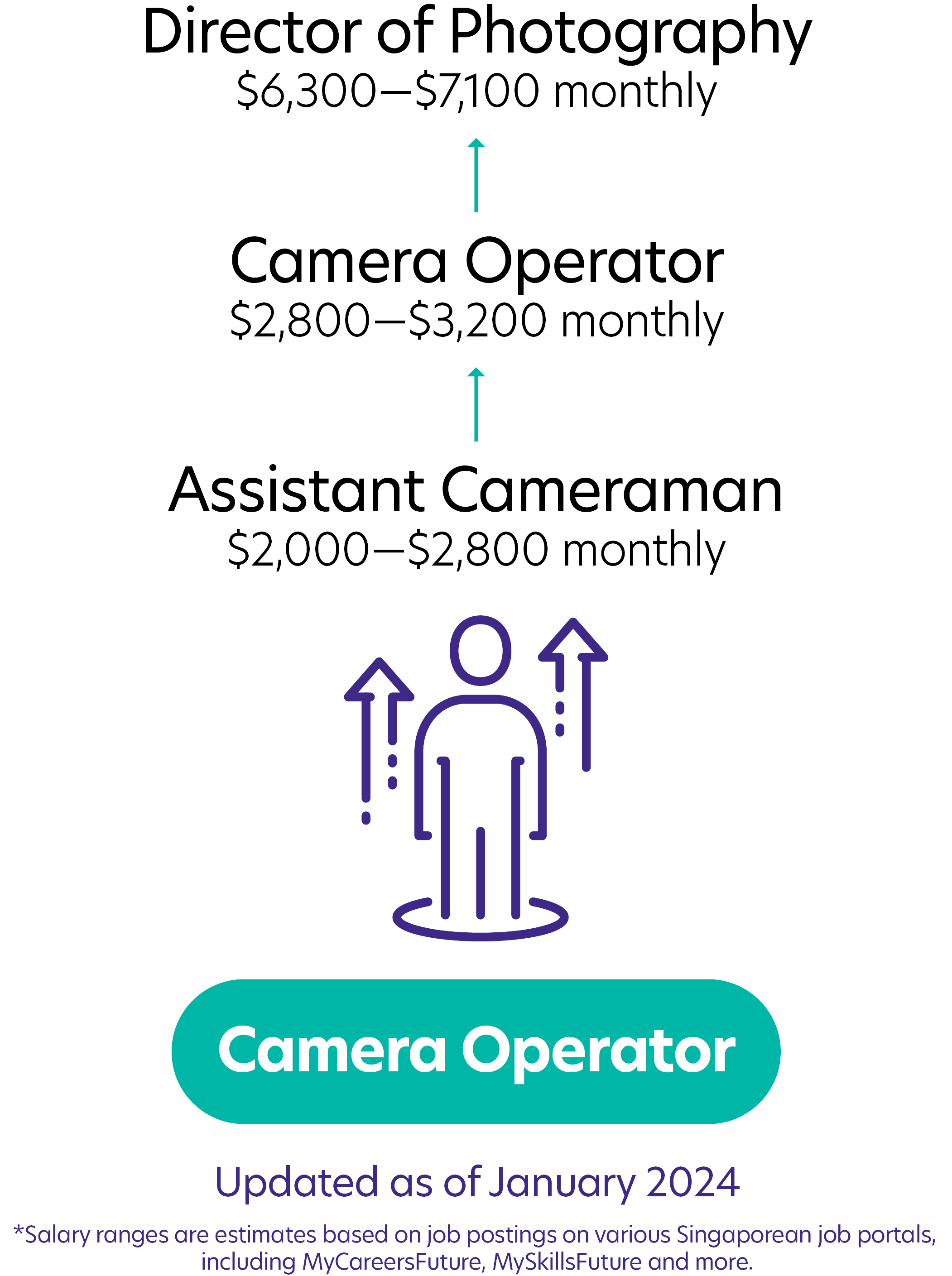
Camera Operators recommend camera angles, types of camera equipment and lighting to be used, and then operate the equipment to capture the best visuals.
Camera Operator Job Description
- Film videos with professional camera equipment.
- Ensure that camera equipment meets technical performance and requirements.
- Revise sequences using editing systems.
- Operate High-definition cameras for news and documentary production.
- Plan and choreograph camera moves.
- Coordinate with sound, set design and lighting teams to create visually appealing shots.
Note
Camera Operators use special cameras like drones and 360 Cameras to capture visuals that may not be shot using standard camera-shooting processes. There is other equipment for capturing live and recorded immersive content, too!
What you should know about Camera Operator jobs in Singapore
Nature of Work
You will operate cameras for film or TV in dynamic environments. Technical skills, creativity, and adaptability are a must.Key Advice
Master various camera gear for live/recorded content to achieve desired effects.-
Entry RequirementsEntry Requirements
- A minimum qualification of a Higher Nitec is required.
- Be passionate about learning! Start by understanding how Camera Operations work and the various functions of different camera equipment.
- Try filming short videos on your phone and putting together a mini-showreel! Some of the best Directors film on their phones to show how it's not so much the equipment as it is your vision.
-
Possible PathwayPossible Pathway

Skills you need to pursue a Camera Operator career in Singapore
Knowledge of Camera Equipment and Operations
Skilled in various camera techs for effective filming.Video Editing
Skilled in advanced editing, capable of transforming raw footage into polished, compelling visual narratives.Immersive Video Capture Techniques
Expert in 360-degree video for immersive visuals.Creative Thinking
Crafts unique visual stories, pushing creative limits for impact.Communication
Excels in clear communication, which is vital for team success and collaboration.Collaboration
Expert in team collaboration for top-quality video production.Explore Other Programmes
Browse AllYou have bookmarked your first item!
Find it in My Discoveries with insights on your interests!










